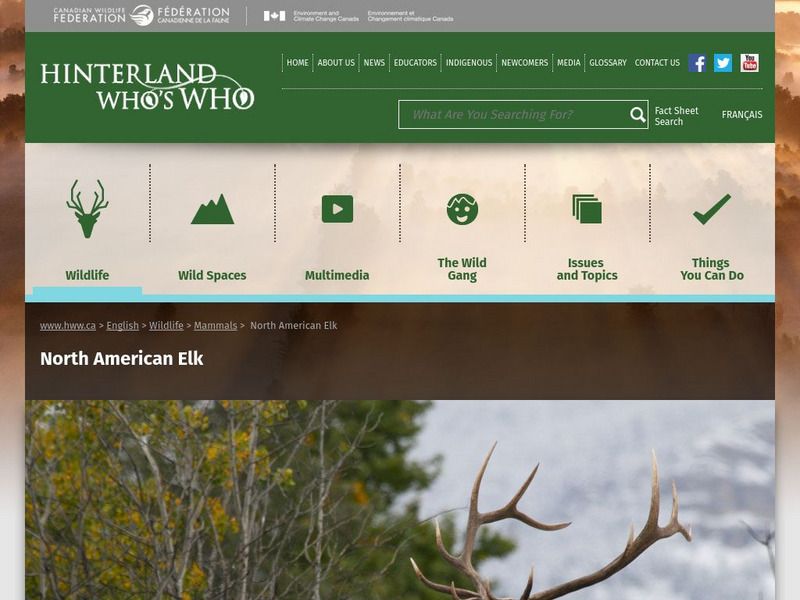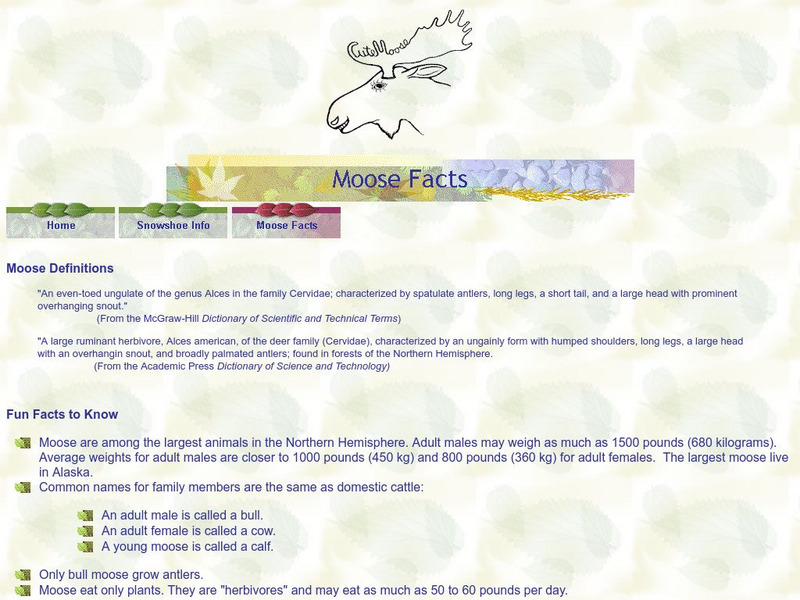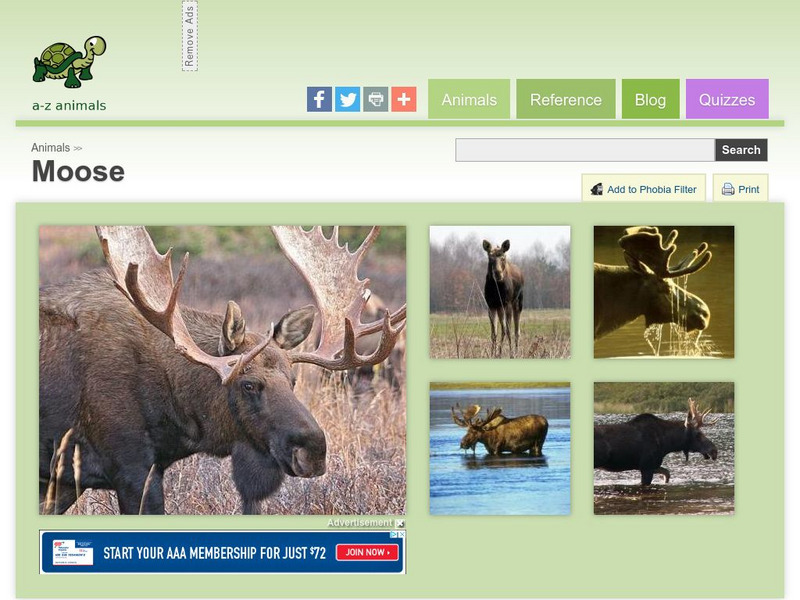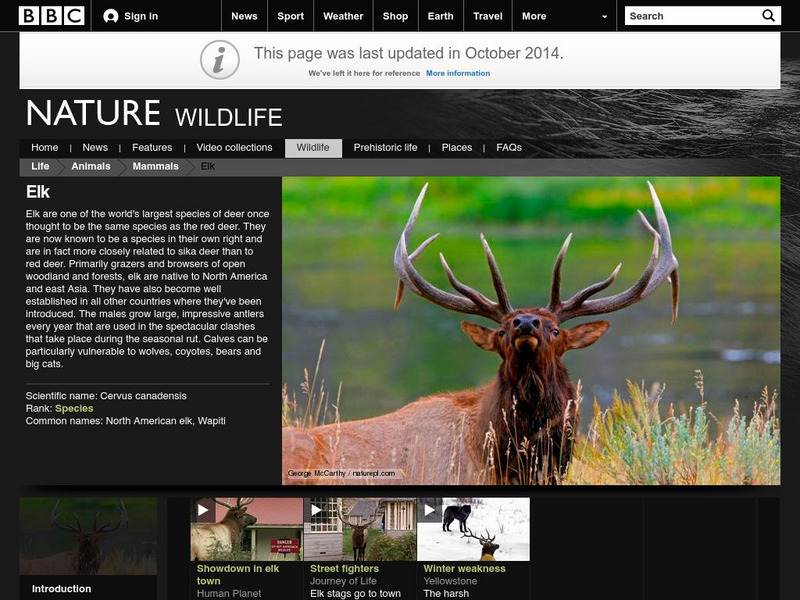Other
Elk Facts
Read some quick facts about elk from the Rocky Mountain Foundation. Including where they come from, what they eat, and how they have adapted. You can also print out an elk maze to test your knowledge.
Canadian Wildlife Federation
Hinterland Who's Who: Elk
Canadian Wildlife site features the North American Elk. Highlights its habitats and habits, range, feeding and breeding characteristics.
Canadian Wildlife Federation
Hinterland Who's Who: Moose
Canadian Wildlife site features the moose. Highlights its habitats and habits, range, feeding and breeding characteristics.
Other
Eduscapes; In Depth Page, Moose
This in depth site provides factual information on the following topics: size, physical characteristics, food, gender, habitat, herding, locomotion, reproduction, range, and predators. Links are provided for those interested in learning...
Other
Moose Facts
Did you know that the adult moose may weigh as much as 1500 pounds and can eat about 50 to 60 pounds of plants per day? Find out more interesting facts about the moose and its evolution, habitat, diet, antlers, and behavior during...
Princeton University
Mammals of North America: Elk and Moose
From the pages of "Mammals of North America," a field guide published by Princeton University Press, this website offers general descriptions of both elk and moose. Detailed pictures and maps of habitat range are also included.
Regents of the University of Michigan
Animal Diversity Web: Eurasian Moose
Comprehensive overview of the Eurasian moose, with information about physical characteristics, geographic range, diet, reproduction, behavior, and habitat.
Regents of the University of Michigan
Animal Diversity Web: Elk
Comprehensive reference information about the elk, or red deer. Includes taxonomic classification, specimens, and other details about this browsing herbivore and its relationship with the environment.
Smithsonian Institution
Smithsonian National Zoo: Zoogoer Magazine: The New Elk on the Block
Mary-Russell Roberson's article on elk in the Zoogoer Magazine centers on herds of elk located in both the western and eastern portions of the states.
A-Z Animals
A Z Animals: Animal Facts: Moose (Alces Alces)
Presents an overview of the Moose, including their habitat, appearance, behavior, and diet. Images of this species and statistics can also be found here.
The BIG zoo
The Big Zoo: Moose (Alces Alces)
This site provides a general overview of the moose. Content explores what this animal eats, where it lives, who its predators are, existing social structure, and more.
Other
Mooseman: Moose
Plenty of facts can be found related to habitat, diet ecology, and behavior on this thorough site. Interesting photos of moose will capture your interest as well.
PBS
Nh Pbs: Nature Works: Moose
The moose is the largest member of the deer family and the largest mammal in North America. Students will find information on its range, habitat, life cycle, behavior, and diet.
Canadian Museum of Nature
Canadian Museum of Nature: North American Elk
The North American elk is commonly called the wapiti. It is almost as large as a moose. Basic facts about the North American elk are given here.
Other
New Hampshire Fish and Game Department: Moose
Description, range, distribution, habitat, and diet are the informative topics delved into in this brief site.













